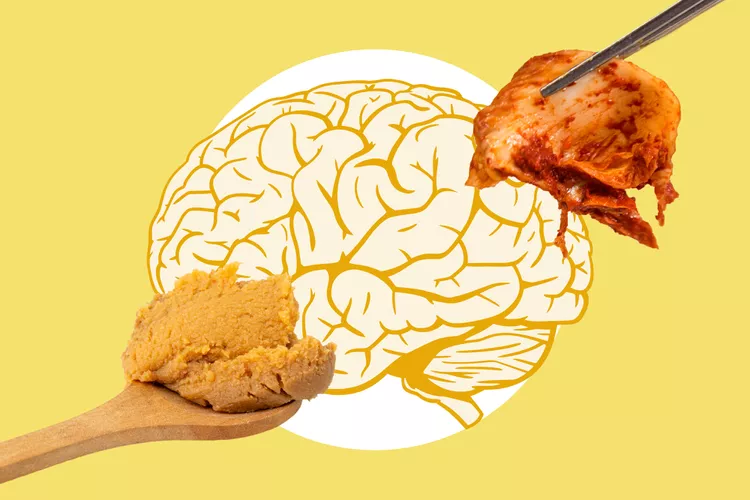Fermented Foods May Help Reduce Anxiety and Depression
A groundbreaking study published in EMBO Molecular Medicine suggests that consuming fermented foods—such as yogurt, kimchi, and miso—may alleviate anxiety and depression by positively influencing gut bacteria, which in turn affects brain chemistry. Mental Health Benefits, Researchers found that probiotics in these foods regulate neurotransmitters, reduce inflammation, and lower activity in the amygdala, a brain region associated with stress and emotions.
The Science Behind Fermented Foods and Mental Health
The gut and brain are in constant communication through the gut-brain axis, which allows them to influence each other via nerves, hormones, and immune signals. Beneficial probiotics in fermented foods impact mental well-being by:
- Enhancing gut barrier integrity
- Modulating immune responses
- Producing neurotransmitter precursors such as gamma-aminobutyric acid (GABA), which helps regulate mood and stress levels
- Reducing C-reactive protein and increasing short-chain fatty acids, both of which lower inflammation linked to anxiety and depression
According to experts, while these findings are promising, human studies are still needed to fully understand the direct impact of fermented foods on mental health.
Top Fermented Foods for Mental Well-Being
To maximize the mental health benefits of fermented foods, opt for those labeled with “live and active cultures”, as pasteurization kills beneficial probiotics. Avoid fermented alcoholic beverages like beer and wine, as they do not provide the same probiotic benefits.
Here are some top choices:
- Yogurt & Kefir: Rich in Lactobacillus and Bifidobacterium, these have been linked to reduced anxiety and depression.
- Kimchi & Sauerkraut: Contain lactic acid and prebiotic fiber, which nourish beneficial gut bacteria.
- Miso & Tempeh: Fermented soybean products packed with probiotics and amino acids that support brain health.
How to Incorporate Fermented Foods into Your Diet
There is no one-size-fits-all recommendation for fermented food consumption, as individual responses vary based on gut microbiota composition and overall diet. Experts suggest:
- Start small: Introduce one serving daily, such as a cup of yogurt or kefir, a few spoonfuls of kimchi, or a bowl of miso soup.
- Monitor your response: Gradual introduction helps avoid digestive discomfort, such as gas or bloating.
- Be consistent: Regular consumption over weeks or months can improve gut health and mental well-being more effectively than occasional intake.
Final Thoughts
While fermented foods offer significant benefits for mental health, they are not a replacement for therapy, medication, or professional mental health treatment. If you are experiencing persistent anxiety, depression, or mood swings that interfere with daily life, consult a doctor or mental health professional.
Incorporating probiotic-rich fermented foods into your diet can support both gut and brain health, making it a valuable addition to a holistic approach to mental well-being.
FAQ: Fermented Foods and Mental Health
Can fermented foods replace medication for anxiety and depression?
No, fermented foods should not replace medication or therapy. They can support mental well-being but should be used alongside professional treatment if needed.
How long does it take to see mental health benefits from fermented foods?
Some people notice improved digestion and mood within a few weeks, but significant changes in gut microbiome diversity and mental health benefits may take a few months of consistent consumption.
What is the best time of day to eat fermented foods?
There is no strict rule, but many people find eating fermented foods with meals helps with digestion and nutrient absorption.
Can eating too much fermented food be harmful?
Yes, excessive consumption can cause digestive discomfort, including gas and bloating. It’s best to introduce them gradually and monitor your body’s response.
Are store-bought fermented foods as effective as homemade ones?
It depends. Look for products labeled “live and active cultures”, as pasteurized versions do not contain beneficial probiotics. Homemade options can often provide more diverse probiotics.
Are there any fermented foods to avoid for mental health?
Fermented alcoholic beverages like beer and wine do not provide probiotic benefits. Additionally, some fermented foods may have high sodium or sugar content, which can negatively impact gut health if consumed in excess.











Leave a Reply